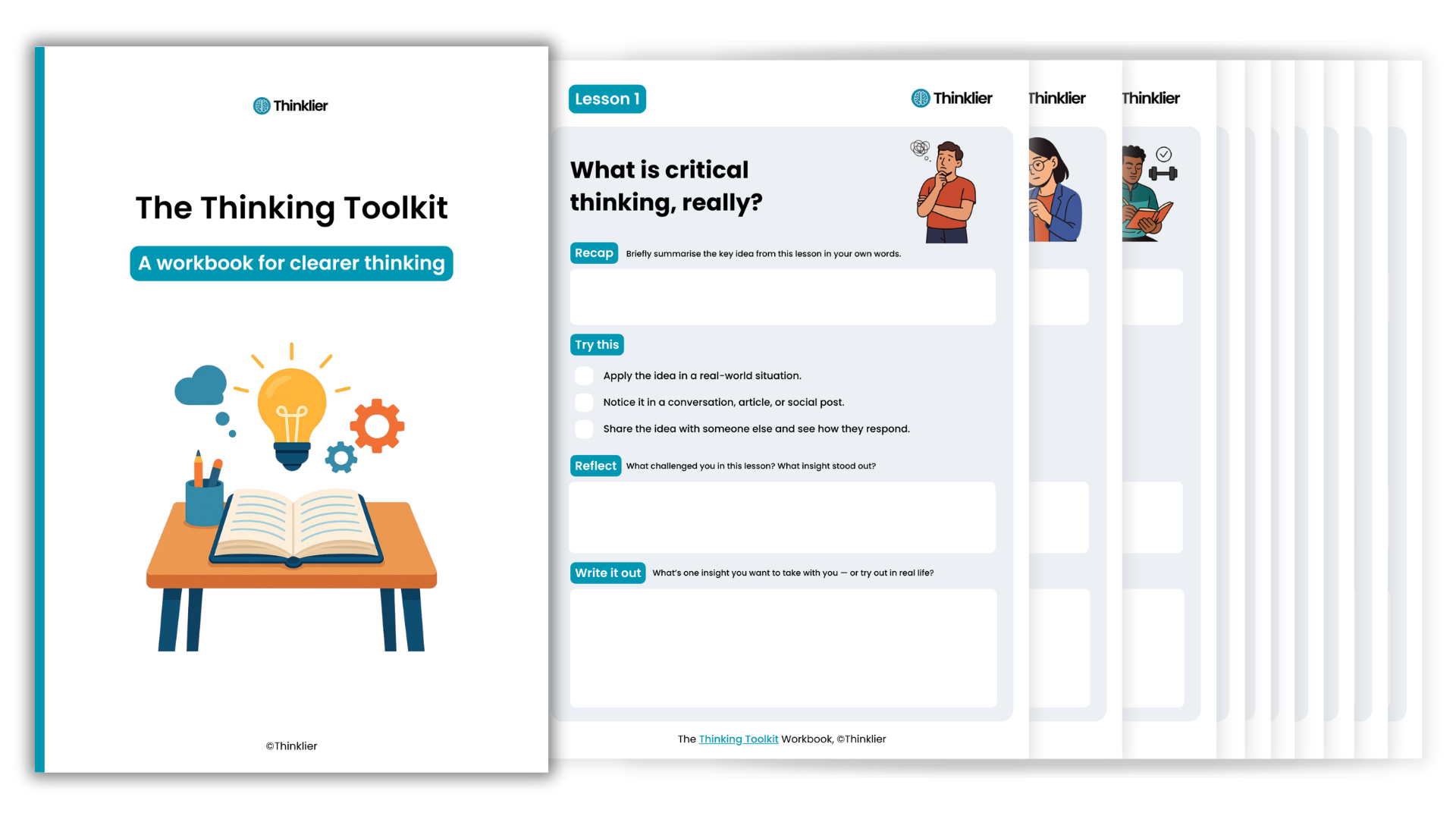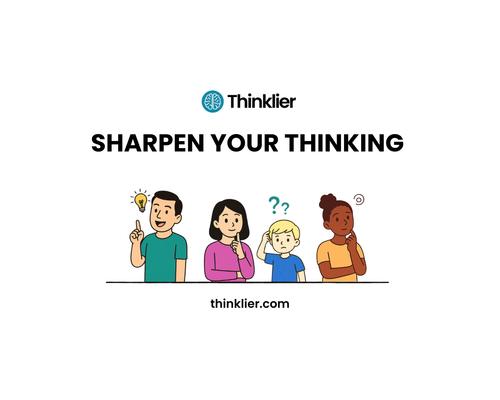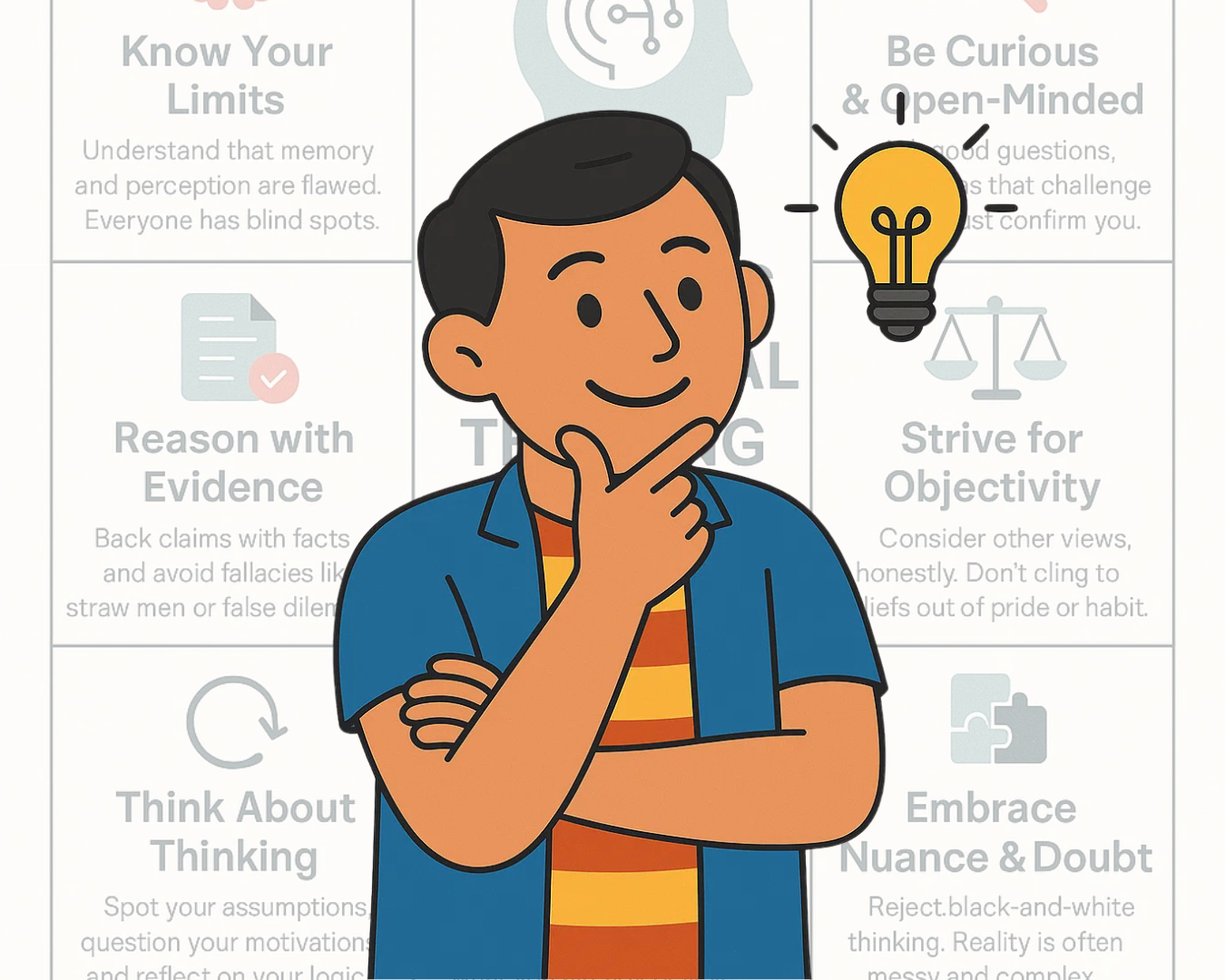We’re bombarded by opinions
Drowned in information. Surrounded by noise.
Everyone’s shouting. Few are thinking.
We’re nudged by algorithms, swept along by trends, and pressured to react — fast.
In a world that prizes certainty over curiosity and performance over reflection, even smart people fall for bad ideas.
That’s not a glitch in the system. It’s the system.
Think more clearly in a confusing world
The Thinking Toolkit is a free, 10-part guide that helps teens and adults build habits for sharper, calmer, more independent thought.
In a world flooded with noise, bias, and pressure to conform, clear thinking isn’t easy — but it is possible.
This guide will help you pause, reflect, and resist the pull of lazy logic, false certainty, and groupthink.
Because thinking clearly isn’t just a skill — it’s a moral act.
Who's the Thinking Toolkit for?
- Students and young adults navigating a sea of opinions
- Curious minds who want to think better, not just argue louder
- Anyone who’s ever asked: “Wait… is that really true?”
What you’ll learn
By the end of this toolkit, you’ll be able to:
- Understand what critical thinking really means (and what it doesn’t)
- Spot common fallacies and cognitive traps in everyday life
- Build intellectual humility without losing confidence
- Sense truth-signals in a world full of noise
- Practise daily habits that train your thinking like a muscle
This is not a textbook. It’s a toolkit.
What’s inside
10 short lessons, each packed with insight, examples, and a real-life challenge:
- What is critical thinking, really?
- Why smart people fall for dumb ideas
- Fallacies: the shortcuts that fool us
- Biases: the traps we don’t see coming
- Cognitive dissonance: the tension behind bad thinking
- Intellectual humility: why it matters
- Slow down! The power of pausing before judging
- Truth signals: how to sense what’s real
- Mental fitness: habits for sharper thought
- Thinking as a moral act: what’s at stake

Companion workbook
The Thinking Toolkit Workbook is a printable (or fillable) companion to the toolkit — with space to reflect, respond, and practise each tool as you go. It includes:
- Guided prompts for every lesson
- Bite-sized challenges and journaling space
- Visual cues to help anchor key ideas
Use it digitally or print it out — it’s designed to fit how you think best.
Pass it along
Know a parent or teacher who’d love this?
Share the toolkit with someone who’s ready to raise kids who don’t just absorb — they reflect.



